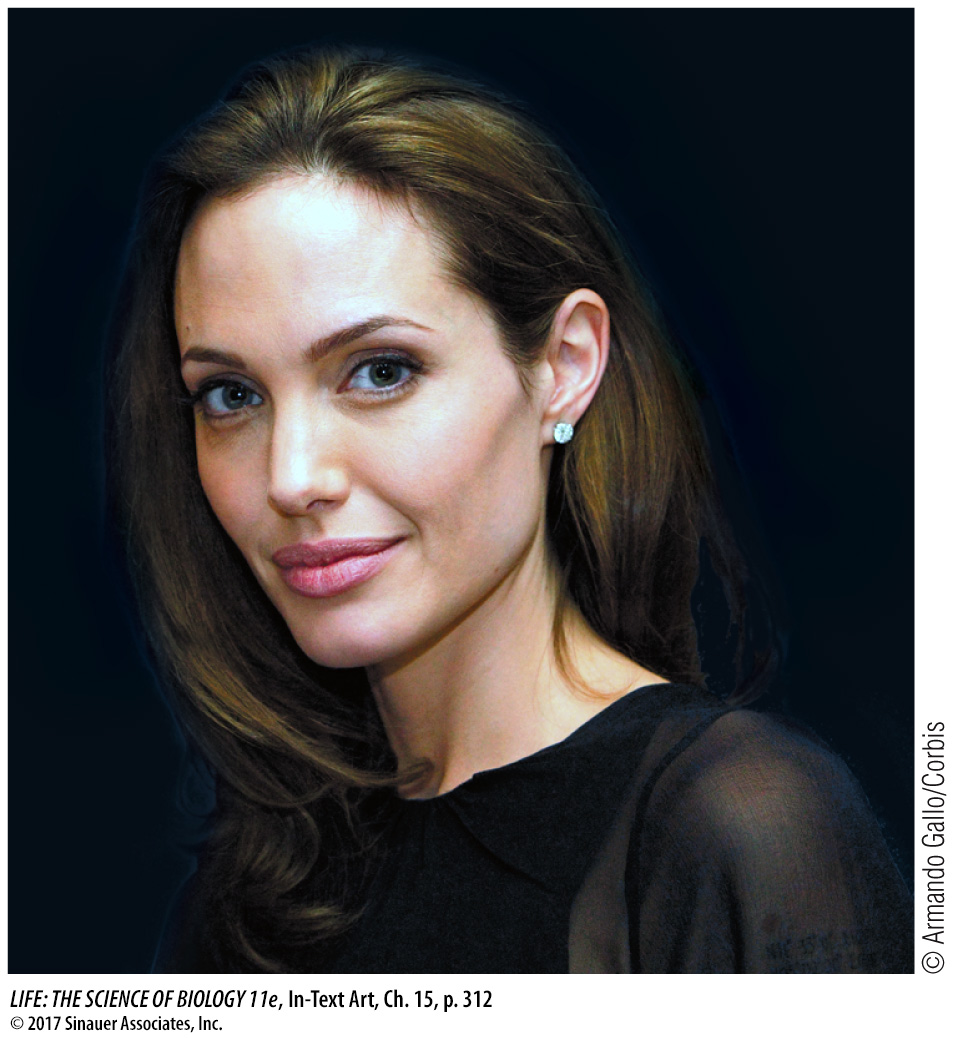Chapter Introduction
312
15
key concepts
15.1
Mutations Are Heritable Changes in DNA
15.2
Mutations in Humans Can Lead to Diseases
15.3
Mutations Can Be Detected and Analyzed
15.4
Genetic Screening Is Used to Detect Diseases
15.5
Genetic Diseases Can Be Treated
Gene Mutation
and Molecular
Medicine

investigating life
The Angelina Jolie Effect
The actress Angelina Jolie surprised many people by announcing that she had had both breasts removed upon learning that she carries a mutation in the “breast cancer gene.” Ms. Jolie had good reason to be concerned: even without genetic tests, her family history suggests a high risk for cancer. Her mother had breast cancer and died at age 56 of ovarian cancer. Her aunt died of breast cancer. Her grandmother died of ovarian cancer. Jolie learned that a mutation in a gene called BRCA1 can be responsible for hereditary ovarian and breast cancers and that her DNA for this gene could be sequenced and analyzed for mutations before cancer symptoms arise. A woman with a harmful mutation in the BRCA1 gene has an 80 percent chance of getting breast cancer by age 60, far in excess of the 8 percent likelihood for women without a mutation. Removal of breast tissue lowers this risk to 10 percent.

Ms. Jolie’s announcement was widely praised by health-
The BRCA1 mutation test is the culmination of research in the molecular genetics of cancer. As we discussed in Chapter 11, cancer can arise through mutations of either oncogenes (resulting in overstimulation of the cell cycle) or tumor suppressor genes (which would otherwise function to slow down the cell cycle). BRCA1 is a tumor suppressor gene involved in DNA repair. When the protein encoded by the gene is faulty because of gene mutation, unrepaired mutations accumulate in breast cell DNA, and some of these mutations improperly activate the cell cycle, resulting in uncontrolled cell division and other adverse effects of a growing tumor. Because BRCA1 is also expressed in ovary tissue, women who are mutation carriers often have their ovaries removed as well; Ms. Jolie had this surgery two years after her breasts were removed.
The precise description of mutations in genetically caused diseases exemplifies the emerging field of molecular medicine. Our ability to identify mutations is leading to more precise testing, diagnoses, and treatments for the diseases they cause.
What is the breast cancer gene, and what are the issues with DNA testing for cancer?